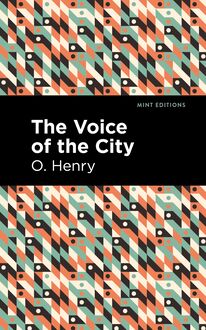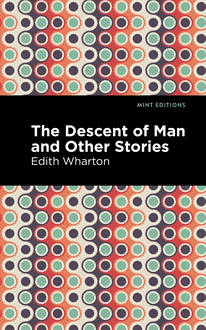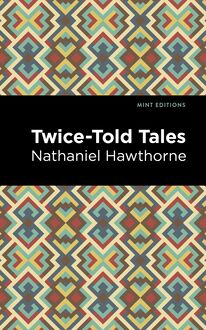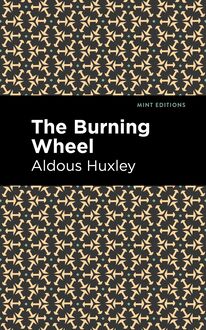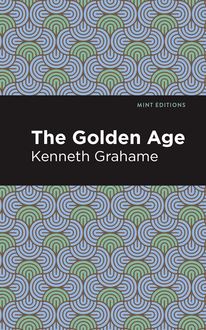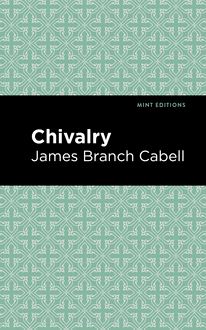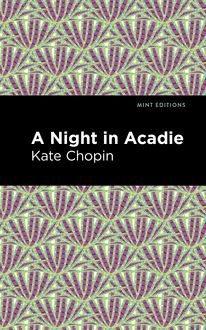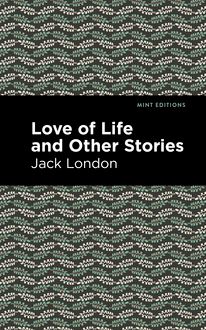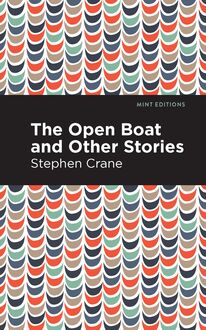-
 Univers
Univers
-
 Ebooks
Ebooks
-
 Livres audio
Livres audio
-
 Presse
Presse
-
 Podcasts
Podcasts
-
 BD
BD
-
 Documents
Documents
-
- Cours
- Révisions
- Ressources pédagogiques
- Sciences de l’éducation
- Manuels scolaires
- Langues
- Travaux de classe
- Annales de BEP
- Etudes supérieures
- Maternelle et primaire
- Fiches de lecture
- Orientation scolaire
- Méthodologie
- Corrigés de devoir
- Annales d’examens et concours
- Annales du bac
- Annales du brevet
- Rapports de stage
La lecture à portée de main
Vous pourrez modifier la taille du texte de cet ouvrage
Découvre YouScribe en t'inscrivant gratuitement
Je m'inscrisDécouvre YouScribe en t'inscrivant gratuitement
Je m'inscrisEn savoir plus
Vous pourrez modifier la taille du texte de cet ouvrage
En savoir plus

Description
The Voice of the City (1908) is a collection of twenty-five short stories by American writer O. Henry. Inspired by his experiences as a fugitive and prisoner, these stories address themes of poverty and city life with humor and abundant empathy. Its focus on the regular, working class people of New York City makes The Voice of the City a sequel of sorts to Henry’s The Four Million (1906), perhaps his most important collection. In “The Voice of the City,” a determined reporter takes to the streets in search of the authentic New York. With an abundance of wit and without social grace, he attempts to interview a young woman sitting on her stoop, a busy bartender, and a corrupt policeman, asking each for their opinion on how the city speaks to them. Despite his efforts, however, he discovers that, for the most part, the city best speaks for itself. “The Complete Life of John Hopkins” follows a day in the life of its title character. In the middle of a conversation with his wife, he decides to step out of his modest flat in search of a cheap cigar. When a fight with a shop owner and a policeman somehow leads him to the home of a wealthy aristocrat, he finds enough excitement to last him a lifetime. In “A Lickpenny Lover,” a young shop girl agrees to go on a date with a patron of her department store glove counter who promises her comfort and wealth. With a beautifully designed cover and professionally typeset manuscript, this edition of O. Henry’s The Voice of the City is a classic of American literature reimagined for modern readers.
Sujets
Informations
| Publié par | Mint Editions |
| Date de parution | 07 mai 2021 |
| Nombre de lectures | 1 |
| EAN13 | 9781513274942 |
| Langue | English |
Informations légales : prix de location à la page 0,0450€. Cette information est donnée uniquement à titre indicatif conformément à la législation en vigueur.
Extrait
The Voice of the City
O. Henry
The Voice of the City was first published in 1908.
This edition published by Mint Editions 2020.
ISBN 9781513269948 | E-ISBN 9781513274942
Published by Mint Editions®
minteditionbooks.com
Publishing Director: Jennifer Newens
Design & Production: Rachel Lopez Metzger
Project Manager: Micaela Clark
Typesetting: Westchester Publishing Services
C ONTENTS I. T HE V OICE OF THE C ITY II. T HE C OMPLETE L IFE OF J OHN H OPKINS III. A L ICKPENNY L OVER IV. D OUGHERTY ’ S E YE -O PENER V. “L ITTLE S PECK IN G ARNERED F RUIT ” VI. T HE H ARBINGER VII. W HILE THE A UTO W AITS VIII. A C OMEDY IN R UBBER IX. O NE T HOUSAND D OLLARS X. T HE D EFEAT OF THE C ITY XI. T HE S HOCKS OF D OOM XII. T HE P LUTONIAN F IRE XIII. N EMESIS AND THE C ANDY M AN XIV. S QUARING THE C IRCLE XV. R OSES , R USES AND R OMANCE XVI. T HE C ITY OF D READFUL N IGHT XVII. T HE E ASTER OF THE S OUL XVIII. T HE F OOL -K ILLER XIX. T RANSIENTS IN A RCADIA XX. T HE R ATHSKELLER AND THE R OSE XXI. T HE C LARION C ALL XXII. E XTRADITED FROM B OHEMIA XXIII. A P HILISTINE IN B OHEMIA XXIV. F ROM E ACH A CCORDING TO HIS A BILITY XXV. T HE M EMENTO
I
T HE V OICE OF THE C ITY
Twenty-five years ago the school children used to chant their lessons. The manner of their delivery was a singsong recitative between the utterance of an Episcopal minister and the drone of a tired sawmill. I mean no disrespect. We must have lumber and sawdust.
I remember one beautiful and instructive little lyric that emanated from the physiology class. The most striking line of it was this:
“The shin-bone is the long-est bone in the hu-man bod-y.”
What an inestimable boon it would have been if all the corporeal and spiritual facts pertaining to man had thus been tunefully and logically inculcated in our youthful minds! But what we gained in anatomy, music and philosophy was meagre.
The other day I became confused. I needed a ray of light. I turned back to those school days for aid. But in all the nasal harmonies we whined forth from those hard benches I could not recall one that treated of the voice of agglomerated mankind.
In other words, of the composite vocal message of massed humanity.
In other words, of the Voice of a Big City.
Now, the individual voice is not lacking. We can understand the song of the poet, the ripple of the brook, the meaning of the man who wants $5 until next Monday, the inscriptions on the tombs of the Pharaohs, the language of flowers, the “step lively” of the conductor, and the prelude of the milk cans at 4 A.M . Certain large-eared ones even assert that they are wise to the vibrations of the tympanum produced by concussion of the air emanating from Mr. H. James. But who can comprehend the meaning of the voice of the city?
I went out for to see.
First, I asked Aurelia. She wore white Swiss and a hat with flowers on it, and ribbons and ends of things fluttered here and there.
“Tell me,” I said, stammeringly, for I have no voice of my own, “what does this big—er—enormous—er—whopping city say? It must have a voice of some kind. Does it ever speak to you? How do you interpret its meaning? It is a tremendous mass, but it must have a key.”
“Like a Saratoga trunk?” asked Aurelia.
“No,” said I. “Please do not refer to the lid. I have a fancy that every city has a voice. Each one has something to say to the one who can hear it. What does the big one say to you?”
“All cities,” said Aurelia, judicially, “say the same thing. When they get through saying it there is an echo from Philadelphia. So, they are unanimous.”
“Here are 4,000,000 people,” said I, scholastically, “compressed upon an island, which is mostly lamb surrounded by Wall Street water. The conjunction of so many units into so small a space must result in an identity—or, or rather a homogeneity that finds its oral expression through a common channel. It is, as you might say, a consensus of translation, concentrating in a crystallized, general idea which reveals itself in what may be termed the Voice of the City. Can you tell me what it is?”
Aurelia smiled wonderfully. She sat on the high stoop. A spray of insolent ivy bobbed against her right ear. A ray of impudent moonlight flickered upon her nose. But I was adamant, nickel-plated.
“I must go and find out,” I said, “what is the Voice of this City. Other cities have voices. It is an assignment. I must have it. New York,” I continued, in a rising tone, “had better not hand me a cigar and say: ‘Old man, I can’t talk for publication.’ No other city acts in that way. Chicago says, unhesitatingly, ‘I will;’ I Philadelphia says, ‘I should;’ New Orleans says, ‘I used to;’ Louisville says, ‘Don’t care if I do;’ St. Louis says, ‘Excuse me;’ Pittsburg says, ‘Smoke up.’ Now, New York—”
Aurelia smiled.
“Very well,” said I, “I must go elsewhere and find out.”
I went into a palace, tile-floored, cherub-ceilinged and square with the cop. I put my foot on the brass rail and said to Billy Magnus, the best bartender in the diocese:
“Billy, you’ve lived in New York a long time—what kind of a song-and-dance does this old town give you? What I mean is, doesn’t the gab of it seem to kind of bunch up and slide over the bar to you in a sort of amalgamated tip that hits off the burg in a kind of an epigram with a dash of bitters and a slice of—”
“Excuse me a minute,” said Billy, “somebody’s punching the button at the side door.”
He went away; came back with an empty tin bucket; again vanished with it full; returned and said to me:
“That was Mame. She rings twice. She likes a glass of beer for supper. Her and the kid. If you ever saw that little skeesicks of mine brace up in his high chair and take his beer and—But, say, what was yours? I get kind of excited when I hear them two rings—was it the baseball score or gin fizz you asked for?”
“Ginger ale,” I answered.
I walked up to Broadway. I saw a cop on the corner. The cops take kids up, women across, and men in. I went up to him.
“If I’m not exceeding the spiel limit,” I said, “let me ask you. You see New York during its vocative hours. It is the function of you and your brother cops to preserve the acoustics of the city. There must be a civic voice that is intelligible to you. At night during your lonely rounds you must have heard it. What is the epitome of its turmoil and shouting? What does the city say to you?”
“Friend,” said the policeman, spinning his club, “it don’t say nothing. I get my orders from the man higher up. Say, I guess you’re all right. Stand here for a few minutes and keep an eye open for the roundsman.”
The cop melted into the darkness of the side street. In ten minutes he had returned.
“Married last Tuesday,” he said, half gruffly. “You know how they are. She comes to that corner at nine every night for a—comes to say ‘hello!’ I generally manage to be there. Say, what was it you asked me a bit ago—what’s doing in the city? Oh, there’s a roof-garden or two just opened, twelve blocks up.”
I crossed a crow’s-foot of street-car tracks, and skirted the edge of an umbrageous park. An artificial Diana, gilded, heroic, poised, wind-ruled, on the tower, shimmered in the clear light of her namesake in the sky. Along came my poet, hurrying, hatted, haired, emitting dactyls, spondees and dactylis. I seized him.
“Bill,” said I (in the magazine he is Cleon), “give me a lift. I am on an assignment to find out the Voice of the city. You see, it’s a special order. Ordinarily a symposium comprising the views of Henry Clews, John L. Sullivan, Edwin Markham, May Irwin and Charles Schwab would be about all. But this is a different matter. We want a broad, poetic, mystic vocalization of the city’s soul and meaning. You are the very chap to give me a hint. Some years ago a man got at the Niagara Falls and gave us its pitch. The note was about two feet below the lowest G on the piano. Now, you can’t put New York into a note unless it’s better indorsed than that. But give me an idea of what it would say if it should speak. It is bound to be a mighty and far-reaching utterance. To arrive at it we must take the tremendous crash of the chords of the day’s traffic, the laughter and music of the night, the solemn tones of Dr. Parkhurst, the rag-time, the weeping, the stealthy hum of cab-wheels, the shout of the press agent, the tinkle of fountains on the roof gardens, the hullabaloo of the strawberry vender and the covers of Everybody’s Magazine , the whispers of the lovers in the parks—all these sounds must go into your Voice—not combined, but mixed, and of the mixture an essence made; and of the essence an extract—an audible extract, of which one drop shall form the thing we seek.”
“Do you remember,” asked the poet, with a chuckle, “that California girl we met at Stiver’s studio last week? Well, I’m on my way to see her. She repeated that poem of mine, ‘The Tribute of Spring,’ word for word. She’s the smartest proposition in this town just at present. Say, how does this confounded tie look? I spoiled four before I got one to set right.”
“And the Voice that I asked you about?” I inquired.
“Oh, she doesn’t sing,” said Cleon. “But you ought to hear her recite my ‘Angel of the Inshore Wind.’ ”
I passed on. I cornered a newsboy and he flashed at me prophetic pink papers that outstripped the news by two revolutions of the clock’s longest hand.
“Son,” I said, while I pretended to chase coins in my penny pocket, “doesn’t it sometimes seem to you as if the city ought to be able to talk? All these ups and downs and funny business and queer things happening every day—what would it say, do you think, if it could speak?”
“Quit yer kiddin’,” said the boy. “Wot paper yer want? I got no time to waste. It’s Mag’s birthday, and I want thirty cents to git her a present.”
Here was no interpreter of the city’s mouthpiece. I bought a paper, and consigned its undeclared treaties, its premeditated murders and unfought battles to an ash can.
Again I repair
-
 Univers
Univers
-
 Ebooks
Ebooks
-
 Livres audio
Livres audio
-
 Presse
Presse
-
 Podcasts
Podcasts
-
 BD
BD
-
 Documents
Documents
-
Jeunesse
-
Littérature
-
Ressources professionnelles
-
Santé et bien-être
-
Savoirs
-
Education
-
Loisirs et hobbies
-
Art, musique et cinéma
-
Actualité et débat de société
-
Jeunesse
-
Littérature
-
Ressources professionnelles
-
Santé et bien-être
-
Savoirs
-
Education
-
Loisirs et hobbies
-
Art, musique et cinéma
-
Actualité et débat de société
-
Actualités
-
Lifestyle
-
Presse jeunesse
-
Presse professionnelle
-
Pratique
-
Presse sportive
-
Presse internationale
-
Culture & Médias
-
Action et Aventures
-
Science-fiction et Fantasy
-
Société
-
Jeunesse
-
Littérature
-
Ressources professionnelles
-
Santé et bien-être
-
Savoirs
-
Education
-
Loisirs et hobbies
-
Art, musique et cinéma
-
Actualité et débat de société
- Cours
- Révisions
- Ressources pédagogiques
- Sciences de l’éducation
- Manuels scolaires
- Langues
- Travaux de classe
- Annales de BEP
- Etudes supérieures
- Maternelle et primaire
- Fiches de lecture
- Orientation scolaire
- Méthodologie
- Corrigés de devoir
- Annales d’examens et concours
- Annales du bac
- Annales du brevet
- Rapports de stage
